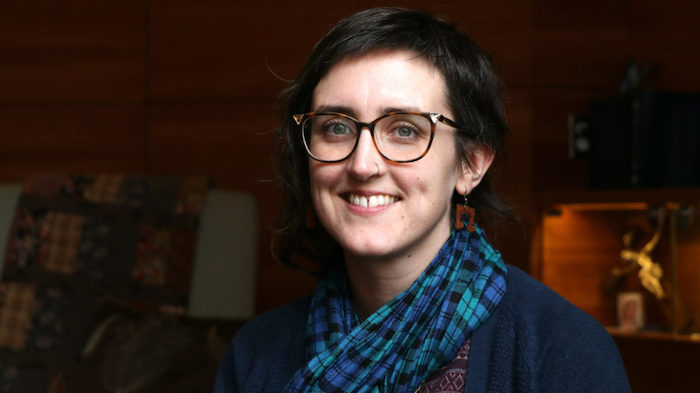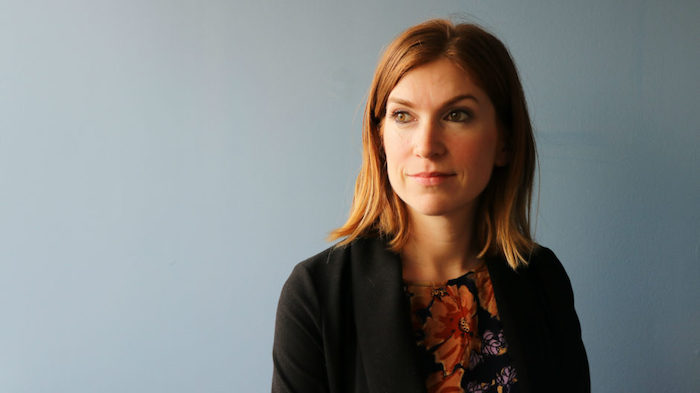
By Maryse Zeidler
Meaghan Jackson has a surprising amount of insight into death and love for a 36-year-old.
“Working here, it’s changed me,” Jackson said from a wood-panelled room at the North Shore Hospice, where she has worked as a music therapist for four years.
“It’s completely changed the trajectory of my life.”

Jackson guides the residents at the hospice through their final days. She helps them write songs for their loved ones, and plays music for them as they take their last breaths.
Jackson has worked in “death and dying” since she was 22. She says her experiences prompted her to have children early in life, and focus on the present, no matter how difficult.
“I practice the art of being present when that present isn’t pleasant,” she said.
Health practitioners like Jackson say their experiences working with dying patients offer insights into love, relationships and how to focus on what matters.

Each of the four practitioners interviewed for this story — a doctor, a social worker, a nurse and a music therapist — say dying patients tend to focus their energy and attention on the people they love.
Dr. Pippa Hawley, a palliative care doctor at the B.C. Cancer Centre, says she has seen couples and families reconcile after decades apart. She’s also seen several of her dying patients get married in the palliative care unit, sometimes in their beds.
Hawley says dying patients don’t have time to take loved ones for granted.
“All of that stuff that we bother with on a day-to-day basis just fades into irrelevancy,” she says.
Dying patients face many challenges with their partners, even when they prioritize love.
Melanie McDonald, a social worker who also works in palliative care at the B.C. Cancer Centre, says every couple she helps deals with death differently.
Couples who thrive during difficult moments are often those who can balance sadness with joy and love, she says.

Nurse Jane Webley, who leads Vancouver Coastal Health’s palliative care unit, says the strongest couples are best at honestly communicating their needs, feelings and end-of-life plans.
Webley says patients who find it too difficult to discuss those matters are often the same ones who push loved ones away and face death alone.
“I think that’s a protection mechanism,” she said. “I would say 90 per cent of the time, it’s fear — and that fear is brought about by lack of communication.”
Dr. Hawley says some of her patients are never able to communicate their feelings and needs. Often, she says, that’s been a long-standing issue for them.
“People tend to die as they have lived,” she said.
Talking about death and end-of-life plans is often easier for older couples who are often more in touch with mortality. But Webley says it’s never too soon to have those difficult conversations.
Another challenge couples face when one is dying is learning to give or receive help, health practitioners say.
Social worker McDonald says people who aren’t used to being caregivers, typically men, often struggle when they’re suddenly thrust into that position. But most people learn to take on that role, she says.

Dr. Hawley says patients can face problems as they lose their independence. But she says it’s important for people to let their partners care for them.
“Don’t feel like you’re a burden,” she said. “It’s actually a wonderful gift to be allowed to care for somebody, to show them that you love them.”
All four of the health care practitioners say love at the end of life can take many shapes.
“Love looks differently in different situations,” says social worker McDonald. “Love shows up in the end of life in friendship and in families and pets and faith traditions and all sorts of different ways.”
Complete Article ↪HERE↩!
